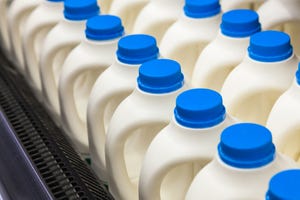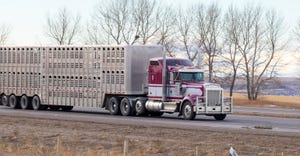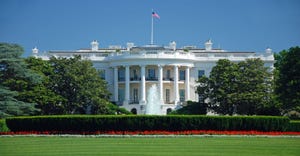Federal agencies maintain recommendation against routine testing of animals.
April 22, 2020

The U.S. Centers for Disease Control & Prevention and the U.S. Department of Agriculture’s National Veterinary Services Laboratories (NVSL) announced April 22 the first confirmed cases of SARS-CoV-2 (the virus that causes COVID-19) infection in two pet cats in separate areas of New York.
These are the first pets in the U.S. to test positive for SARS-CoV-2, USDA said. Previously, a tiger at the Bronx Zoo in New York tested positive after developing respiratory symptoms.
The pet cats both had mild respiratory illness and are expected to make a full recovery. SARS-CoV-2 infections have been reported in very few animals worldwide, mostly in those that had close contact with a person with COVID-19, USDA said.
At this time, CDC and USDA said routine testing of animals is not recommended. Should other animals be confirmed positive for SARS-CoV-2 in the U.S., USDA will post the findings at https://www.aphis.usda.gov/aphis/ourfocus/animalhealth/SA_One_Health/sars-cov-2-animals-us. State animal health and public health officials will take the lead in making determinations about whether animals should be tested for SARS-CoV-2, the announcement said.
In the cases announced April 22, a veterinarian tested the first cat after it showed mild respiratory signs. No individuals in the household were confirmed to be ill with COVID-19. The virus may have been transmitted to this cat by mildly ill or asymptomatic household members or through contact with an infected person outside its home, USDA noted.
Samples from the second cat were taken after it showed signs of respiratory illness. The owner of the cat tested positive for COVID-19 prior to the cat showing signs. Another cat in the household has shown no signs of illness.
Both cats tested presumptive positive for SARS-CoV-2 at a private veterinary laboratory, which then reported the results to state and federal officials. The confirmatory testing was conducted at NVSL and included collection of additional samples. NVSL serves as an international reference laboratory and provides expertise and guidance on diagnostic techniques as well as confirmatory testing for foreign and emerging animal diseases. Such testing is required for certain animal diseases in the U.S. in order to comply with national and international reporting procedures. The World Organization for Animal Health (OIE) considers SARS-CoV-2 an emerging disease, and therefore, USDA must report confirmed U.S. animal infections to OIE.
Public health officials are still learning about SARS-CoV-2, but there is no evidence that pets play a role in spreading the virus in the U.S., the agencies said. Therefore, there is no justification in taking measures against companion animals that may compromise their welfare. Further studies are needed to understand if and how different animals, including pets, could be affected, CDC and USDA said.
The agencies said while additional animals may test positive as infections continue in people, it is important to note that performing this animal testing does not reduce the availability of tests for humans.
You May Also Like



